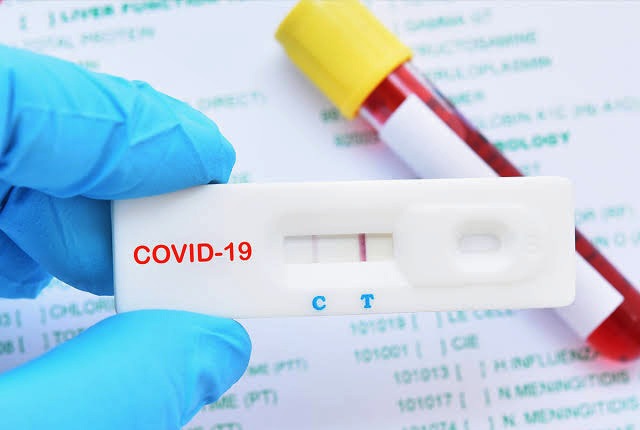New Delhi (NVI): The World Health Organization (WHO) has announced that it along with its leading partners has made a set of agreements to provide 120 million affordable, high-quality COVID-19 antigen rapid tests to help lower and middle-income countries.
The organisations involved in the milestone agreement include the Africa Centres for Disease Control and Prevention (Africa CDC), the Bill & Melinda Gates Foundation, the Clinton Health Access Initiative (CHAI), the Foundation for Innovative New Diagnostics (FIND), the Global Fund, Unitaid, and WHO.
“As part of this comprehensive, end-to-end effort, the Bill & Melinda Gates Foundation has executed separate volume guarantee agreements with rapid diagnostic test (RDT) producers Abbott and SD Biosensor,” the WHO said in a statement.
These two arrangements will make available to LMICs 120 million antigen rapid diagnostic tests (Ag RDTs) – priced at a maximum of USD 5 per unit – over a period of six months, it added.
However, these tests provide results in 15–30 minutes, rather than hours or days, and will enable expansion of testing, particularly in countries that do not have extensive laboratory facilities or trained health workers to implement molecular (polymerase-chain reaction) tests.
The tests developed by Abbott and SD Biosensor are highly portable, reliable, and easy to administer, making testing possible in near-person, decentralized healthcare settings.
Both companies’ tests are faster and cheaper than laboratory-based tests, enabling countries to increase the pace of testing, tracing and treating people for COVID-19 at the point of care particularly in areas with under-resourced health systems.
A number of other Ag RDTs are also at various stages of development and assessment, the WHO said.
Moreover, the Global Fund announced that it has made available an initial USD 50 million from its COVID-19 Response Mechanism to enable countries to purchase at least 10 million of the new rapid tests for LMICs at the guaranteed price, the UN agency noted.
“Unitaid and Africa CDC will combine resources to initiate the roll out of these tests in up to 20 countries in Africa starting in October,” it added.
The UN agency further stated, testing is a critical cornerstone of the COVID-19 response, enabling countries to trace and contain the virus now, and to prepare for the roll-out of vaccines once available.
Effective testing strategies rely on a portfolio of test types that can be used in different settings and situations. While molecular tests started to be rolled out within a month of the virus being sequenced, these tests are mainly laboratory based, relying trained personnel to conduct them.
Likewise, rapid tests to detect the presence of the virus at the point of care, which are faster and cheaper, are a vital addition to the testing arsenal needed to contain and fight COVID-19.
These agreements are, however, critical to fulfil the key objective of the ACT-Accelerator- to ensure all countries, regardless of income, have fair access to new tests and tools to fight COVID-19.
Tedros Adhanom Ghebreyesus, Director General of WHO said, “High-quality rapid tests show us where the virus is hiding, which is key to quickly tracing and isolating contacts and breaking the chains of transmission.”
“The tests are a critical tool for governments as they look to reopen economies and ultimately save both lives and livelihoods,” Tedros added.
-RJV








